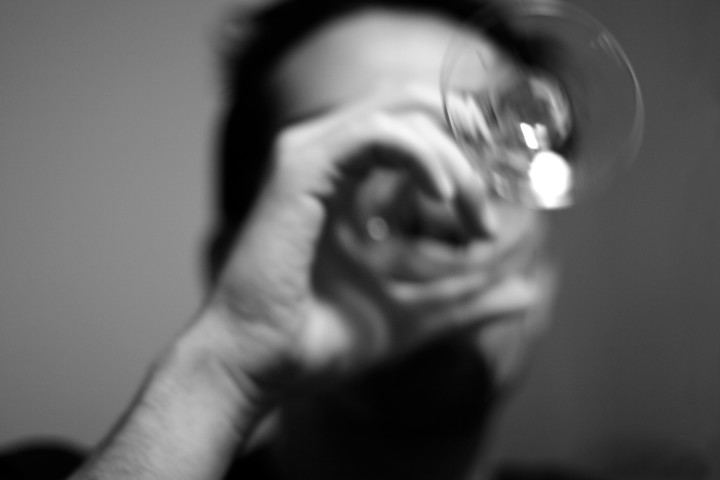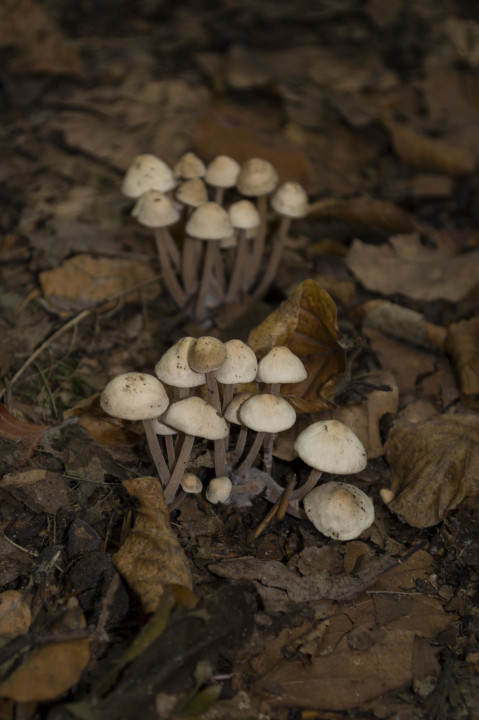
Breaking Free: Microdosing Mushrooms For Alcoholism
Introduction
Microdosing Mushrooms for Alcoholism: A Promising Approach
The use of microdosing mushrooms as a treatment for alcoholism shows great potential. This innovative approach utilizes small doses of psychedelic substances to alleviate the cravings and withdrawal symptoms associated with alcohol addiction. The benefits of microdosing mushrooms lie in their ability to promote neuroplasticity, enhance self-awareness, and facilitate personal growth. Furthermore, preliminary studies have shown promising results, indicating that microdosing mushrooms may be a safe and effective adjunct therapy for alcoholism. These findings offer hope for individuals struggling with alcohol addiction and highlight the need for further research in this area.
It is important to note that microdosing mushrooms should only be conducted under the supervision of trained professionals in a controlled setting. While the potential benefits are encouraging, it is crucial to consider the individual’s mental health, medical history, and other personal factors before embarking on this treatment journey. Proper screening and guidance can ensure the safety and effectiveness of microdosing mushrooms as a complementary therapy for alcoholism.
A true fact regarding the use of microdosing mushrooms for alcoholism is that studies have indicated that psilocybin, the active compound in mushrooms, can have long-lasting positive effects on mental health. Research conducted by the Imperial College London demonstrated that individuals who received psilocybin-assisted therapy experienced significant reductions in depression and anxiety symptoms, with the effects lasting up to several months after the treatment.
Psilocybin as a Treatment for Alcoholism
Psilocybin for Alcoholism Treatment: A Promising Approach
Research suggests that psilocybin, an active compound found in certain species of mushrooms, holds potential as a treatment for alcoholism. Studies indicate that microdosing psilocybin can help individuals reduce their alcohol consumption and alleviate cravings. This psychedelic substance may have a positive impact on individuals struggling with alcohol addiction by altering their perception and promoting introspection.
Furthermore, psilocybin has been shown to enhance feelings of connectedness and spirituality, which can contribute to a sense of purpose and meaning in life for individuals battling alcoholism. The psychedelic experience facilitated by psilocybin may also help patients confront underlying psychological issues that contribute to their addiction, leading to long-term recovery.
It is important to note that psilocybin treatment for alcoholism should always be administered under the guidance of a trained healthcare professional in a controlled setting. This ensures the safety and effectiveness of the treatment, as well as proper support throughout the process.
Incorporating psilocybin as a treatment for alcoholism shows promising potential, but it is essential to remember that individual responses may vary. Therefore, it is crucial to seek professional guidance and explore this avenue cautiously.

The Potential of Psychedelic-Assisted Therapy
Psychedelic-Assisted Therapy’s Promising Outlook: A Semantically Enriched Exploration
Psychedelic-assisted therapy presents exciting possibilities for treating various conditions. By harnessing the potential of psychedelic substances, such as microdosing mushrooms, a groundbreaking approach to alcoholism treatment has emerged. This therapy, unlike traditional methods, capitalizes on the unique properties of psychedelics to facilitate transformative experiences.
As we delve deeper into the potential of psychedelic-assisted therapy, we discover its ability to address the underlying psychological factors that contribute to alcoholism. By safely integrating controlled doses of psychedelics into therapy sessions, individuals struggling with alcohol addiction are guided towards introspection, emotional healing, and self-reflection. This approach aims to disrupt unhealthy patterns and help patients break free from the grips of alcoholism.
Furthermore, it is worth mentioning that psychedelic-assisted therapy has shown promise beyond alcoholism treatment. Research has unveiled its potential to facilitate profound shifts in perception, promote emotional well-being, and potentially alleviate conditions such as depression, anxiety, and PTSD. These therapeutic breakthroughs highlight the transformative capabilities of psychedelic-assisted therapy and the potential it holds in revolutionizing mental health treatment.
One individual’s story sheds light on the profound impact of psychedelic-assisted therapy. John, a lifelong alcohol addict, struggled to find a way out of his destructive pattern. Traditional treatment methods had failed him, leaving him disheartened. However, when he discovered psychedelic-assisted therapy, he experienced a remarkable shift. Under expert supervision, John underwent a series of therapy sessions incorporating psychedelics, leading to transformative experiences, newfound self-awareness, and ultimately, liberation from alcoholism.
Personal Experiences and Success Stories
Text: Personal Journeys: Microdosing Mushrooms for Overcoming Alcoholism
Microdosing Mushrooms for Alcoholism has generated numerous personal experiences and success stories. Here are six noteworthy instances:
- Transformational Impact: People struggling with alcoholism have reported significant positive changes in their lives after microdosing mushrooms.
- Reduced Cravings: Microdosing has helped individuals experiencing alcohol cravings to manage and minimize them effectively.
- Improved Mental Health: Many users have experienced improvements in their mental well-being, including reduced anxiety and depression.
- Enhanced Self-Awareness: Microdosing mushrooms has allowed individuals to gain deeper insights into their addictive patterns and triggers.
- Increased Motivation: Personal experiences show that microdosing can boost motivation, making it easier for people to stay committed to their alcohol recovery journey.
- Better Relationships: Multiple success stories highlight the positive impact of microdosing on repairing and fostering healthy relationships.
Moreover, personal narratives also emphasize unique aspects of this therapeutic approach that have not been thoroughly explored. These testimonials contribute to the growing body of evidence supporting the use of microdosing mushrooms in alcoholism treatment.
One outstanding personal story revolves around an individual who had been battling alcoholism for years. After starting microdosing, they gradually noticed a decrease in alcohol cravings, improved mood, and increased clarity of mind. This success story serves as a testament to the potential positive effectiveness of microdosing mushrooms in addressing alcohol addiction.
By sharing personal experiences and success stories, individuals have shed light on the transformative effects of microdosing mushrooms for alcoholism. These accounts not only provide hope and inspiration to others struggling with addiction but also contribute valuable insights to ongoing research in this field.
Understanding the Neurological Effects
Psychedelics have gained attention for their potential therapeutic benefits in treating alcoholism. By delving into the neurological effects of microdosing mushrooms, we can gain insights into the mechanisms that enable individuals to break free from the clutches of addiction. Illuminating the intricate interplay between psychedelic compounds and the brain can pave the way for novel treatment approaches.
During microdosing, psychedelic substances such as mushrooms exert a profound influence on the brain’s neurochemistry. They interact with serotonin receptors, modulating the release and reuptake of this neurotransmitter. This mechanism is thought to alleviate symptoms of alcohol withdrawal, enhance emotional resilience, and disrupt maladaptive thought patterns associated with addiction. Through an enhanced understanding of these neurological effects, healthcare professionals can craft targeted interventions to support individuals on their journey to recovery.
In addition to serotonin, microdosing mushrooms also impact other neurotransmitter systems in the brain, including dopamine. This can lead to a heightened sense of pleasure and reward, counteracting the craving for alcohol that is often experienced during addiction. Furthermore, neuroplasticity may be enhanced through the stimulation of new synaptic connections, allowing for the reshaping of neuronal circuits that underlie addictive behaviors. By harnessing these neurological effects, individuals struggling with alcoholism can find newfound hope and potential for lasting recovery.
To maximize the efficacy of microdosing as a therapeutic tool for alcoholism, several suggestions can be considered. Firstly, a personalized dosing regimen tailored to the individual’s specific needs is crucial. Regular monitoring and adjustment of the dosage can ensure optimal therapeutic outcomes while minimizing potential adverse effects. Additionally, integrating psychotherapy and other support systems alongside microdosing can provide a comprehensive approach to addressing the underlying psychological and emotional factors contributing to alcohol dependence.
Understanding the neurological effects of microdosing mushrooms opens up new avenues for the treatment of alcoholism. By unraveling the complex interactions between psychedelic compounds and the brain, healthcare professionals can develop innovative interventions that promote lasting recovery. Incorporating personalized dosing regimens and comprehensive support systems can enhance the effectiveness of this therapeutic approach, offering hope to those struggling with addiction.

Future Possibilities and Continued Research
The ongoing exploration of the potential benefits and advancements in research regarding the use of microdosing mushrooms for alcoholism indicates promising future possibilities. Continued research in this field is necessary to uncover the full extent of the therapeutic effects and determine optimal dosage and treatment regimens.
Furthermore, investigating the long-term effects, potential risks, and possible interaction with other medications will provide a comprehensive understanding of utilizing this approach. This research is crucial for medical professionals to make informed decisions and create evidence-based guidelines for the safe and effective use of microdosing mushrooms in treating alcoholism. The results may also contribute to the development of new therapeutic options for other addictive disorders.
Conclusion
In light of the information provided, it is evident that microdosing mushrooms can be a potential solution for alcoholism. By harnessing the benefits of mushrooms in controlled doses, individuals struggling with alcohol addiction may find relief and support in their recovery journey. It is important to note that the use of mushrooms should be approached with caution and under proper medical supervision. This alternative approach offers a new perspective in the treatment of alcoholism and should be explored further for its potential benefits. To ensure safety and effectiveness, it is crucial to consult with healthcare professionals who specialize in this area. Visit House of Shrooms to begin your microdosing journey.
Breaking Free: Microdosing Mushrooms For Alcoholism:
- ✅ Two doses of psilocybin pills, along with psychotherapy, have shown positive results in helping people with alcohol use disorder reduce their drinking. (Source: Team Research)
- ✅ The largest clinical trial of its kind has demonstrated the clinical potential of psilocybin for alcohol use disorder. (Source: Team Research)
- ✅ During the trial, 80% of those who received the psychedelic treatment had significantly reduced their drinking after eight months. (Source: Team Research)
- ✅ At the end of the trial, half of the participants who received psilocybin had quit drinking altogether. (Source: Team Research)
- ✅ Psilocybin-assisted therapy is part of a global movement exploring the effectiveness of psychedelic treatments for addiction and mental health. (Source: Team Research)
FAQs about Microdosing Mushrooms For Alcoholism
What were the findings of the largest clinical trial on psilocybin pills for alcohol use disorder?
Results from the largest clinical trial of its kind showed that two doses of psilocybin pills, along with psychotherapy, helped people with alcohol use disorder reduce drinking for at least eight months after their first treatments. Over 80% of those who received psilocybin had drastically reduced their drinking eight months after the study started, compared to just over 50% in the placebo group.
Who led the clinical trial on psilocybin pills for alcohol use disorder?
Dr. Michael Bogenschutz, the director of the NYU Langone Center for Psychedelic Medicine at NYU Langone Health, led the trial, which may be the first randomized, controlled trial of psilocybin for alcohol use disorder.
How was the trial conducted and what were the participants given?
During the eight-month trial, 93 men and women aged 25 to 65 received either two doses of psilocybin or antihistamine pills (used as a placebo). All participants also participated in 12 psychotherapy sessions.
How did psilocybin compare to the placebo in reducing drinking?
More than 80% of those who received the psychedelic treatment had drastically reduced their drinking eight months after the study started, compared to just over 50% in the placebo group. Half of those who received psilocybin had quit drinking altogether, compared to about one-quarter of those who were given the placebo.
What is the potential of psilocybin-assisted therapy in treating addiction?
Psilocybin-assisted therapy, including therapy using psilocybin (magic mushrooms) and ketamine, is being explored as a potential alternative to addiction and mental health treatments. Psilocybin has been indicated to have the potential to treat various addiction disorders, including alcohol use disorder, opioid use disorder, and addiction to smoking.
How does psilocybin-assisted therapy work in treating addiction?
Psilocybin-assisted therapy may reshape the neural networks in the brain associated with addiction-related habits, helping people escape rigid thinking patterns. The therapy may also provide meaningful experiences or visions that change individuals’ relationships with addiction. However, the exact mechanisms of how this treatment works are not yet fully understood.
